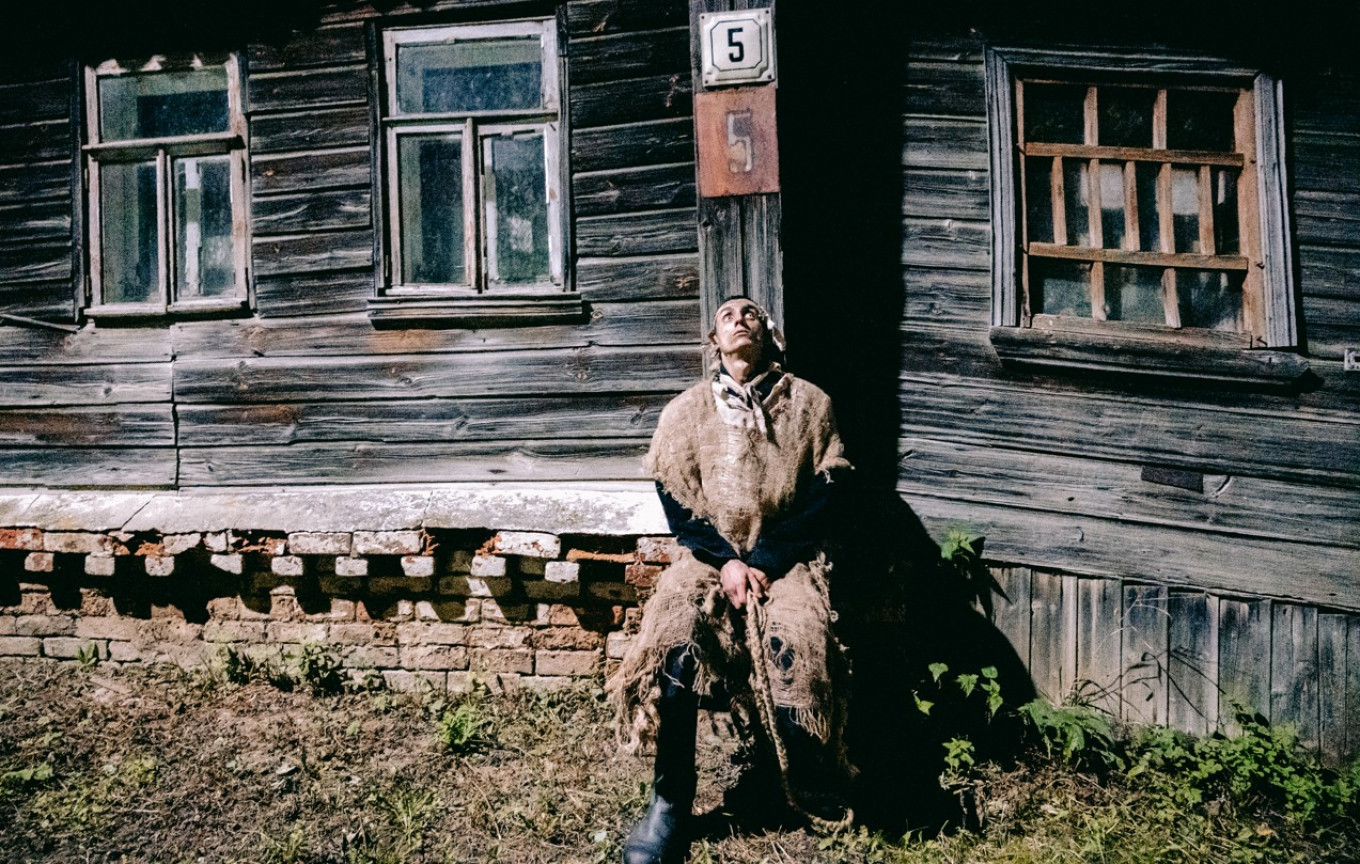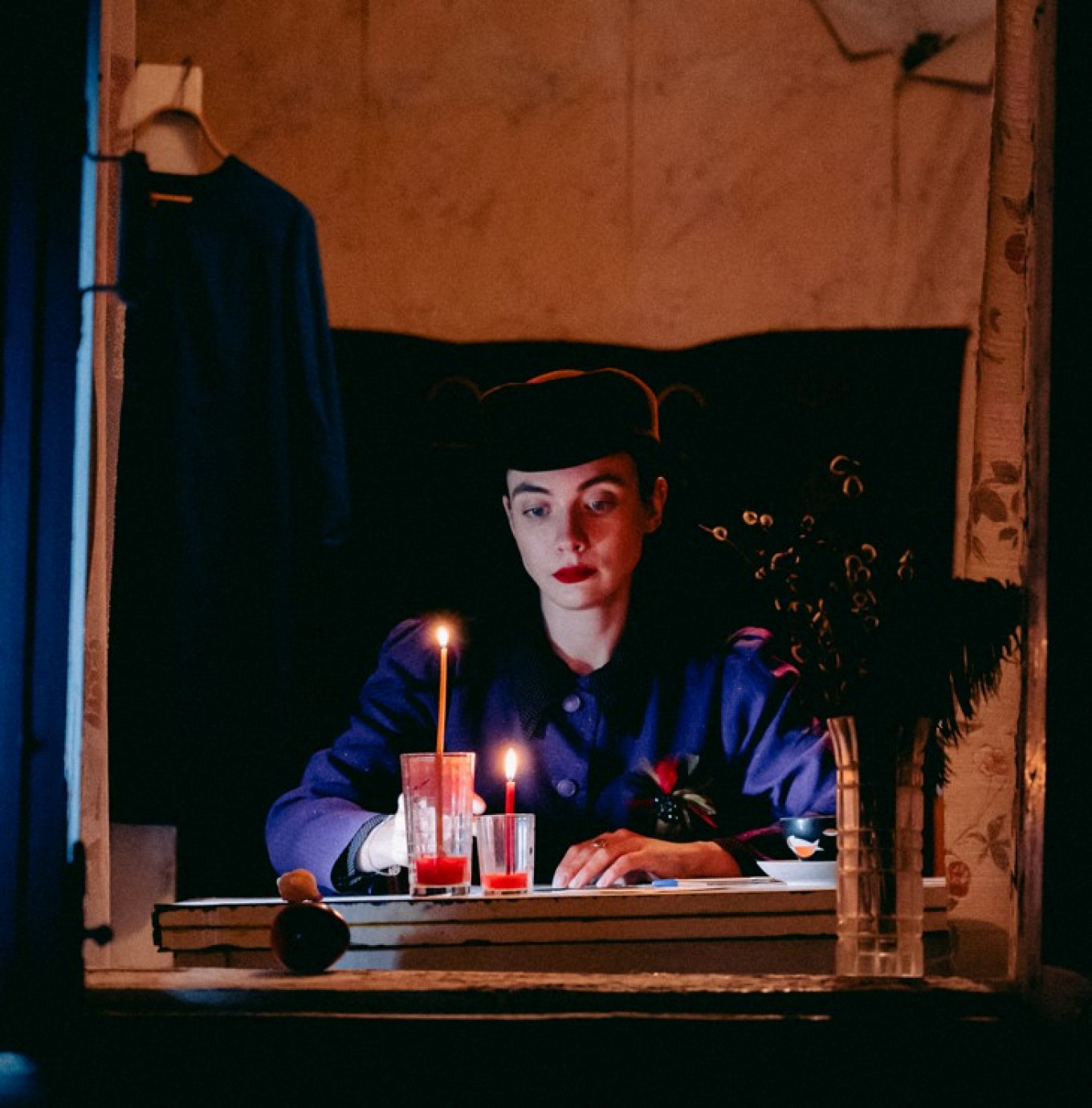At the beginning of the 20th century, about 1,000 people lived in the village of Fomikha in the Vladimir region. Now there are about 40 houses — 20-30 are used as dachas, and only about five are lived in year-round. To be fair, it’s no wonder: you can only get to the village in an off-road vehicle or by ferry on the Nerl River.
The village had an old and unused church called Our Lady of Kazan. In 2020, it was transformed into the village comedy and drama theater.
How it all began
The theater was one of the projects of the independent theater group called “Sketches in Space” formed by Moscow actors, directors and artists.
As Dmitry Maksimenkov, director and producer of the ‘Sketches in Space’ theater, described the theater origins to The Moscow Times, “We met Andrei Popov, who was running arts residencies called “Chelovek Mira” (Person of the World) in the Suzdal region. We started doing ‘art laboratories’ with him, and one time we went to the village of Fomikha, where he has a house. In the summer of 2020, we bought a house in the village and turned an old cattle barn into a small theater hall. The arts group Myra and Popov helped us.”
At first, they planned to use the space for art residencies, but after they put on the play “Pick Mushrooms,” they realized that actually, they’d opened a theater.
Dmitry Myshkin, another director of the theater, told The Moscow Times that the future belongs to the village, not cities. “One day we’ll all return to our roots,” he said.

All the world is their stage
The fields, forest, and river surrounding Fomikha became the characters and the stage for the theater performances. Three productions were staged, two of them near the village.
The “strolling play” “Pick Mushrooms” is based on the play of the same name by Natalia Zaitseva and is performed in different parts of the forest near the village of Fomikha. This is a play about the relationship between people and the world around them.
For the team, the theater is a way of shaping reality. “In the play, an ecologist invents mushrooms that eat plastic. If we performed it inside, we would have needed elaborate sets, but when we came out into the forest, we saw a garbage dump covered real mushrooms. It was amazing,” Dmitry Maksimenkov said.
The “walking play” “ProPraSuzdal” leads spectators on foot through unusual places in the town of Suzdal, which is 55 km from the village of Fomikha.
Another performance is called “Kolobok’s Diary” directed by Yana Tumina with Pavel Semchenko as art designer. It is based on folklore from the villages of the regions of Russia, and takes place in the village of Kideksha, Vladimir region.

Present and future
During the year, two art laboratories were held in the village of Fomikha. The creators of the theater call their repertory “site-specific performances” and consider their productions a cultural bridge between the city and rural life. “We work with real spaces, changing the way people look at them. Each performance is a space for the imagination,” Dmitry Myshkin said.
In January 2021, the theater building burned down, and many locals thought that the team would leave the village. But the artists put up a yurt and continued their work. They hope to restore the theater building soon.
At present there are 8-10 people in the permanent team, but Dmitry Maksimenkov says that many people in the arts from the city of Vladimir want to work with them. Audiences come from Vladimir, Suzdal, Moscow, St. Petersburg, and cities even farther afield. Recently there were tourists from Denmark and Sweden.
“We create theatrical voyages. In the winter, we perform when it’s -20 Celsius, and in the summer when its +35 Celsius. To get to Fomikha, people have to cross a river. But we all gain something in the process. New meaning is born through the prism of the theater,” Dmitry Maksimenkov said.
For more information, see the site MYRA.
Leave a Reply